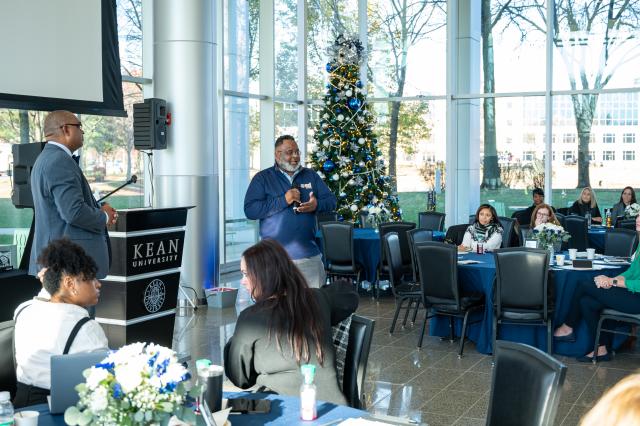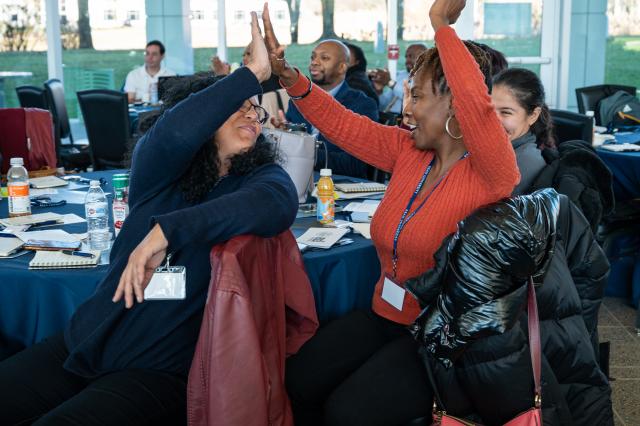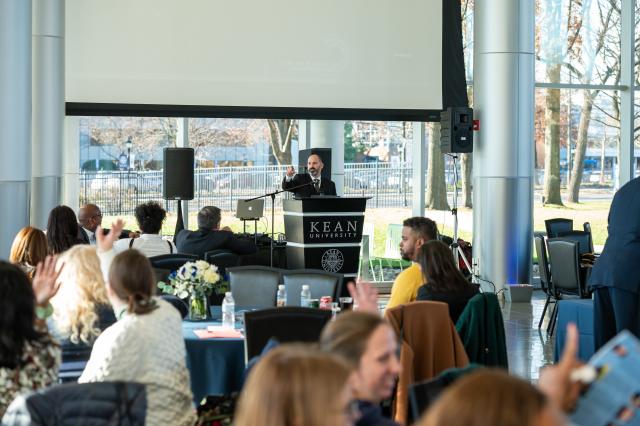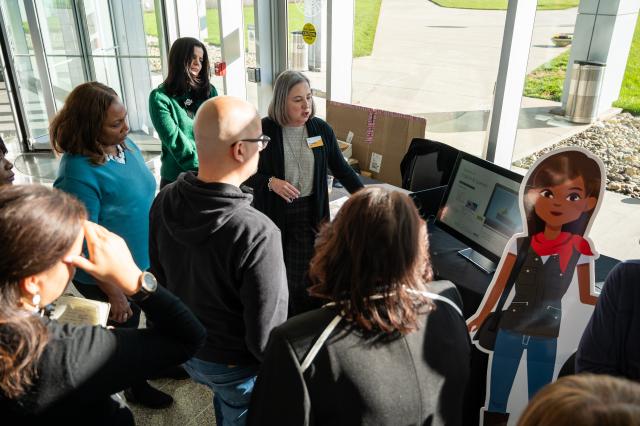Meeting the Learning Challenge Brought on by COVID-19
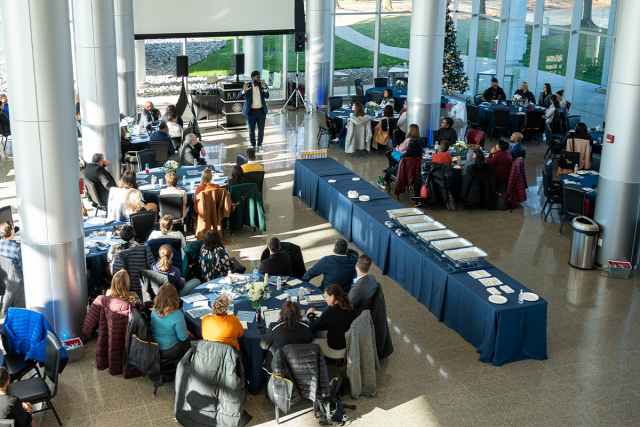
Nearly 100 New Jersey public school administrators came together on Kean University’s campus recently to hear the latest research on learning loss during the COVID-19 pandemic and sample new technologies to support students and educators in the post-COVID learning environment.
The districts' superintendents, principals, vice principals and curriculum supervisors attended the informational summit, Our Journey Beyond COVID-19: Meeting the Challenge, hosted by Kean University’s Division of Entrepreneurial Education Initiatives (EEI) and the educational learning company Houghton Mifflin Harcourt (HMH). HMH offers integrative programs to accelerate learning to close learning gaps exacerbated during the pandemic’s remote learning phase.
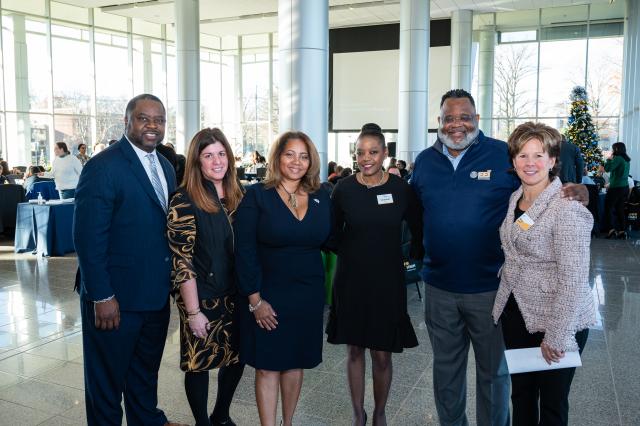
“COVID-19 exposed a lot of the inequities that we knew existed in schools, but it also created a probletunity (problem met with opportunity) to better understand the science behind learning and take the steps needed to address the longstanding inequities,” said Sancha K. Gray, Ed.D., senior vice president for EEI at Kean. “At this conference, we sought to lighten the load for educators, the students and their families.”
Test scores from the New Jersey Student Learning Assessments show proficiency rates dropped at all grade levels in English language arts and nearly all grades in math and science this year compared to 2019, the last time the exams were given before the pandemic struck. Results of the National Assessment of Educational Progress, known as the Nation’s Report Card, showed significant drops in math and reading skills nationwide.
The conference keynote speaker, Akbar H. Cook Sr., principal of West Side High School in Newark, urged the educators to lead with love and meet students where they are.
“In order for us to address the learning loss, we have to treat students as individuals. We need to find ways outside of school to expose them to what they need to know because life is not going to take it easy on them,” he said. “I am talking about tutoring after school and Saturday and summer classes, new technologies and other ways to bridge the gap so we can get those kids back on track.”
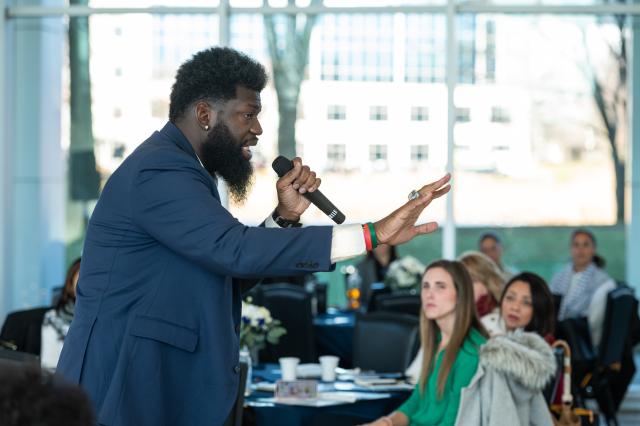
Also addressing the conference was Michael Salvatore, Ph.D., Kean senior vice president for administration.
"I'm always excited to share research-based practices for data integration, and the energy from the audience was contagious. The team in EEI does an excellent job engaging their partnership districts’ leadership personnel and providing high-quality executive leadership opportunities for development,” he said.
The educators were eager to see demonstrations of HMH intervention programs – Amira Learning, Read 180, Math 180, Waggle and Writable – that target specific learning gaps in reading, math and writing. Verborah Reeves, senior account representative, said the programs offer individualized supplemental learning for students.
“There is a need across the entire state of New Jersey. It doesn’t matter the demographics or where the students are located. We are finding that almost every school district has learning loss,” Reeves said.
The Township of Union Public Schools is a partner with Kean’s EEI division. The principal of the district’s Battle Hill Elementary School, Sharon Drayton ’01, attended the conference and said it was good to come together to compare notes with fellow educators.
“We all have the same issues, and we can share information about what we put to work in our schools,” she said. “It doesn’t mean that it has to be exactly the same issue. As we were sitting here, listening to the speakers, ideas were popping out around the table. That’s why conferences like this are important.”
